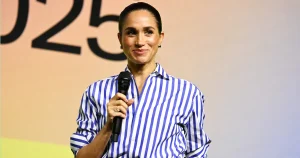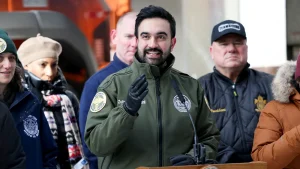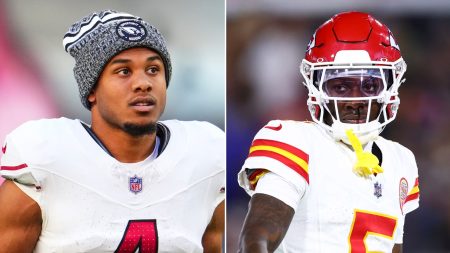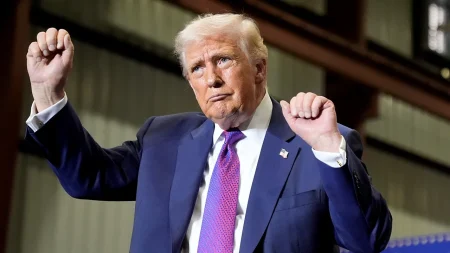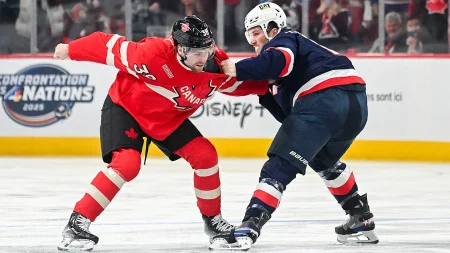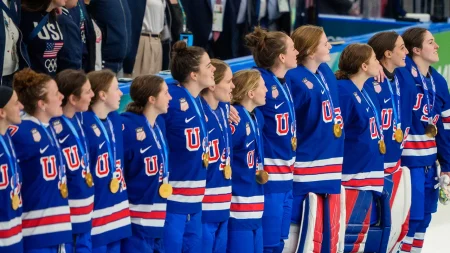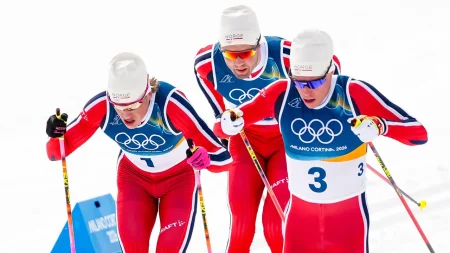Mark Davis, owner of the Las Vegas Raiders, finds himself in a familiar position: grappling with the underperformance of his team. The Raiders’ dismal 2-11 record, punctuated by a nine-game losing streak, has understandably fueled speculation about the future of first-year head coach Antonio Pierce. However, Davis has remained tight-lipped, refusing to offer any assurances about Pierce’s job security. While acknowledging his disappointment with the team’s performance, Davis has emphasized that midseason evaluations are premature and a thorough assessment will occur at the season’s end. This noncommittal stance reflects a cautious approach, allowing Davis to thoroughly analyze the situation before making any significant personnel decisions. The silence, however, speaks volumes about the precarious nature of Pierce’s position, leaving his future shrouded in uncertainty as the Raiders continue their tumultuous season.
Pierce’s journey with the Raiders began in 2022 when he assumed the role of interim head coach following the dismissal of Josh McDaniels. He made an immediate impact, benching veteran quarterback Jimmy Garoppolo in favor of Aidan O’Connell, signaling a shift in the team’s direction. Despite the upheaval, Pierce managed to steer the Raiders to a respectable 5-4 record under his interim leadership, culminating in a second-place finish in their division. This relative success earned him the head coaching position for the 2024 season. However, the initial promise of his tenure has faded considerably, replaced by the harsh reality of a struggling team mired in a protracted losing streak. The stark contrast between Pierce’s interim success and the team’s current struggles raises questions about his ability to lead the Raiders long term, adding further intrigue to Davis’s eventual decision.
Davis, in his characteristic fashion, has deflected blame away from individual players or coaches, instead shouldering the responsibility for the Raiders’ underwhelming performance. He acknowledges the injuries and challenges the team has faced, but emphasizes that overcoming adversity is a fundamental aspect of professional football. Davis’s philosophy centers on empowering the individuals he hires, providing them with clear objectives and allowing them the autonomy to execute their strategies. He views his role as one of oversight and evaluation, preferring to judge performance based on tangible results rather than micromanaging day-to-day operations. This hands-off approach, while potentially empowering, also places the onus squarely on his appointed leaders to deliver, leaving them vulnerable to criticism and potential dismissal if results fail to meet expectations.
The Raiders’ current predicament underscores the high-stakes nature of professional sports, where success is measured in wins and losses, and patience often wears thin quickly. Davis’s refusal to offer a vote of confidence to Pierce, while understandable given the team’s struggles, inevitably intensifies the pressure on the young coach. The “Black Friday” game against the Kansas City Chiefs, described by Pierce himself as a contest between the “best team in football vs. the worst team,” further highlights the disparity between the Raiders’ current reality and their aspirations. Every game becomes a referendum on Pierce’s coaching abilities, adding to the weight of expectation and the scrutiny he faces.
Davis’s assertion that he avoids making on-field decisions reinforces his management style, emphasizing his trust in the individuals he hires to manage the team’s operations. This delegation of authority, while intended to empower coaches and players, also carries inherent risks. When a team consistently underperforms, the lines of responsibility can become blurred, and the ultimate accountability rests with the owner. Davis’s statement that “it comes down to me” reflects his understanding of this dynamic. He acknowledges that while he may not be directly involved in on-field decisions, his choices in personnel ultimately shape the team’s fortunes. This acceptance of responsibility underscores his commitment to the Raiders’ success, even as he navigates the difficult task of evaluating the team’s current leadership.
As the Raiders’ season continues its downward spiral, the looming evaluation period weighs heavily on both Pierce and the organization as a whole. Davis’s deliberate silence on Pierce’s future underscores the complexity of the decision he faces. While Pierce’s interim success offered a glimmer of hope, the team’s subsequent struggles have raised serious doubts about his ability to lead the Raiders back to contention. Davis must carefully weigh the potential benefits of continuity against the need for change, a decision that will have far-reaching implications for the franchise’s future. The final weeks of the season will be crucial, not only for the players on the field but also for Pierce, whose fate hangs in the balance as Davis prepares to make a defining decision about the leadership of the Las Vegas Raiders.
